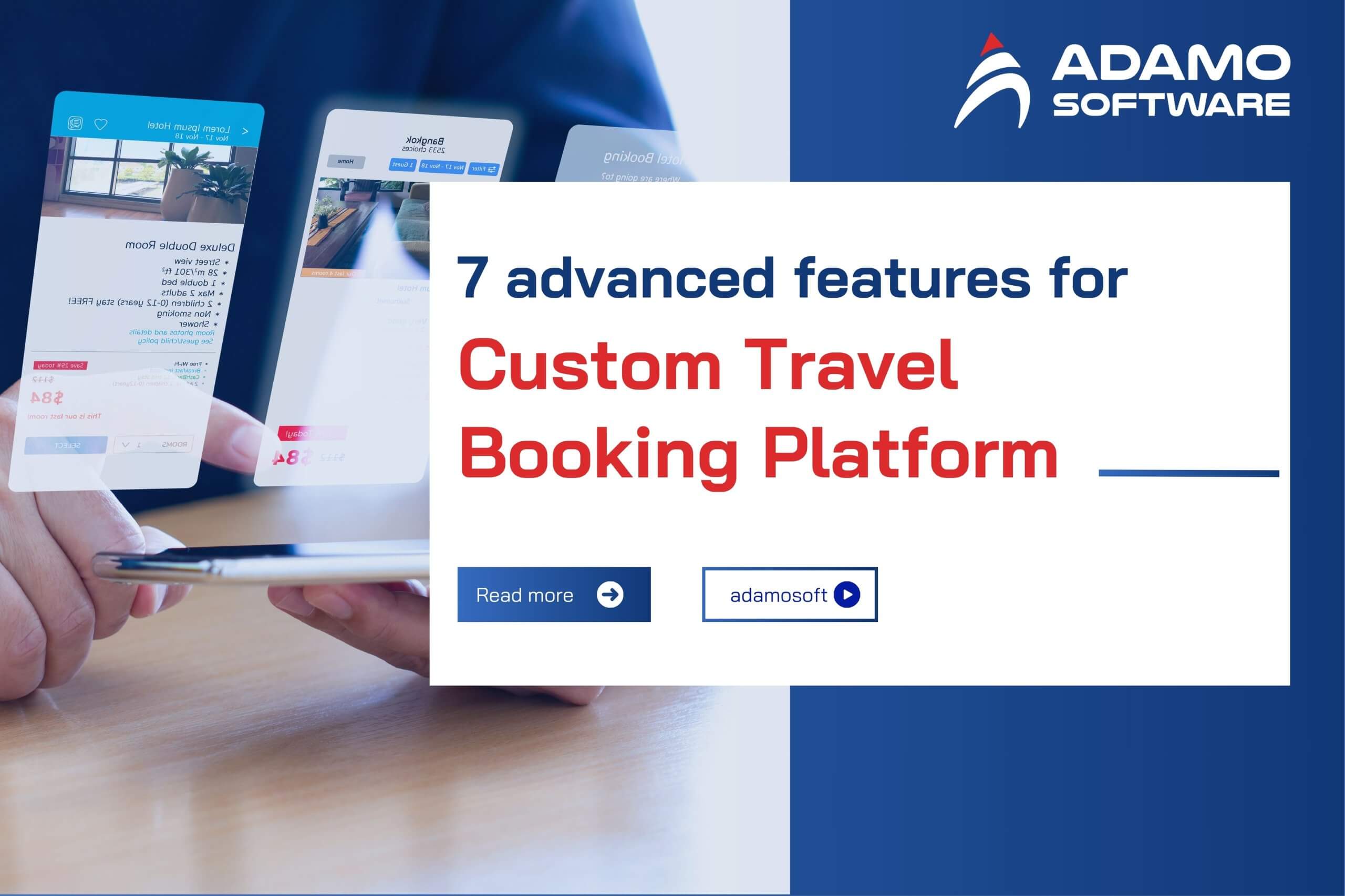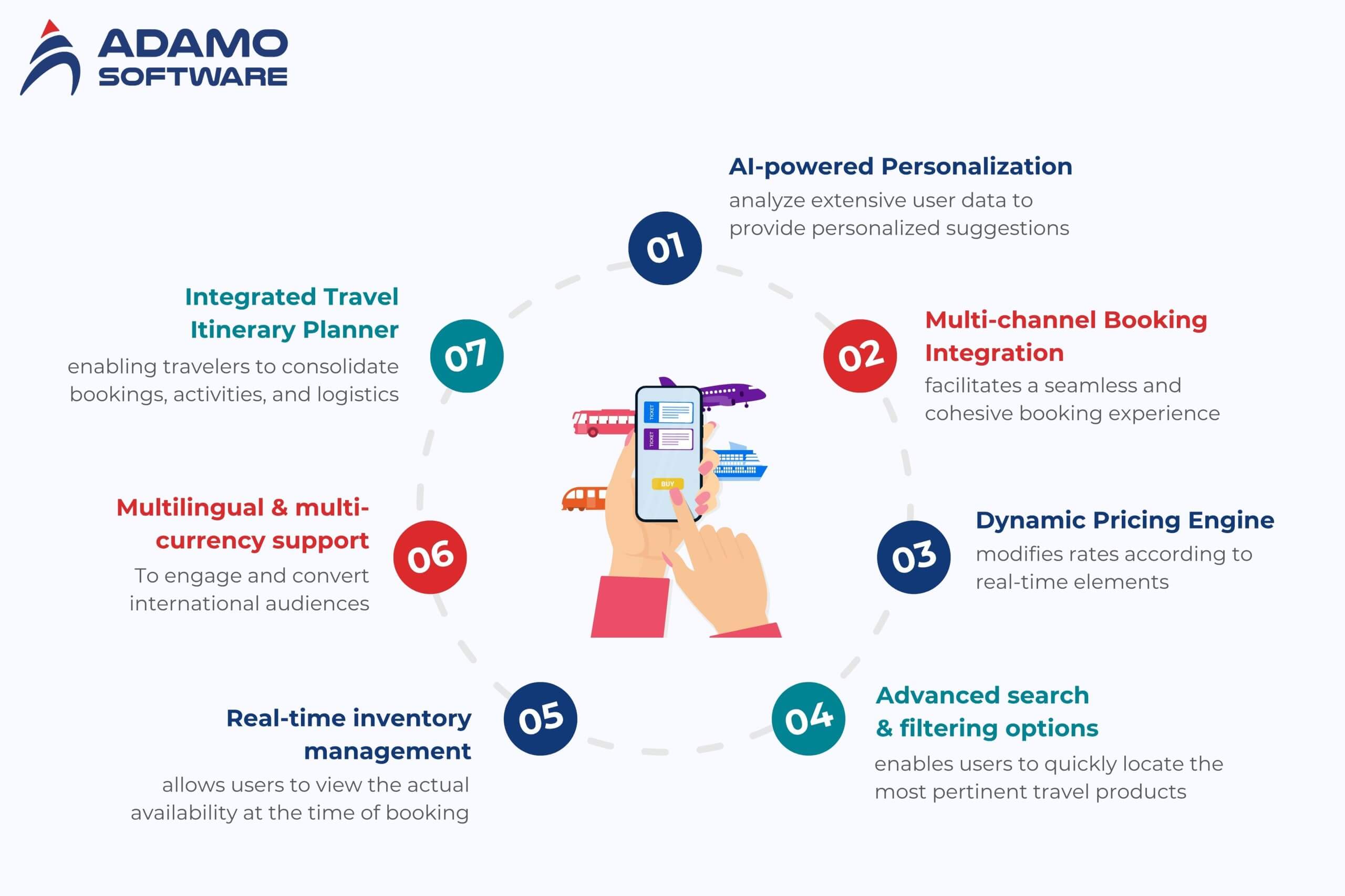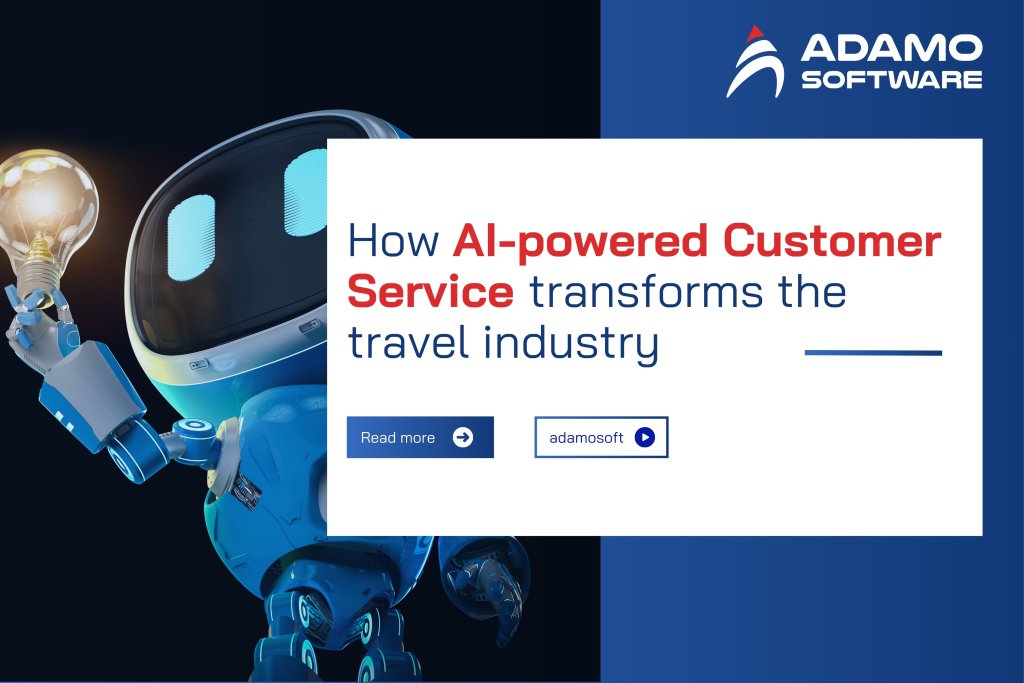7 Advanced Features for Building a Custom Travel Booking Platform

Discover 7 advanced features to build a custom travel booking platform that stands out—AI personalization, dynamic pricing, real-time inventory & more.
In the current digital travel environment, standard booking platforms are no longer adequate. The emergence of tech-savvy travelers and mobile-first lifestyles has led to unprecedented expectations for seamless, personalized, and immersive travel experiences. Companies that depend on obsolete systems jeopardize their market position against more nimble rivals.
Statista’s forecast for 2025 indicates that global online travel sales are expected to reach $1.06 trillion, an increase from $880 billion in 2023. This increase highlights the essential requirement for innovation and enhanced features in custom booking platforms—not only to address changing traveler preferences but also to maintain competitiveness in a crowded market.
This blog delves into seven advanced features that can elevate your custom travel booking platform from merely functional to truly exceptional, offering implementation tips, real-world examples, and data-supported insights.

1. AI-Powered Personalization
Description:
AI is transforming the way travel platforms provide value. Through the use of machine learning, platforms are able to analyze extensive user data—such as previous bookings, browsing habits, seasonal preferences, and demographic indicators—to provide personalized travel suggestions. This feature enables platforms to function as virtual travel agents.
Benefits:
- Enhanced user interaction via carefully selected content.
- Improved conversions by presenting the appropriate offer at the optimal moment.
- Fostering customer loyalty by offering tailored trip recommendations and timely reminders.
Implementation:
- Use machine learning frameworks like TensorFlow or Scikit-learn to build recommendation engines.
- Integrate A/B testing platforms (e.g., Optimizely) to fine-tune offers.
- Apply natural language processing (NLP) to interpret user queries on-site or in chatbots for smarter responses.
Real-world Example:
Platforms such as Hopper and Expedia leverage AI to examine flight price trends and provide tailored alerts, enhancing user engagement and driving bookings.
Data Insight:
As reported by McKinsey & Company (2024), brands that adopt advanced personalization can achieve up to 5x return on marketing investment and a 10–15% boost in sales.
2. Multi-channel Booking Integration
Description:
Today’s consumers engage through various devices and platforms—desktop, mobile, social media, and messaging applications. Multi-channel integration facilitates a seamless and cohesive booking experience, permitting users to initiate their online booking engine on one platform and finalize it on another.
Benefits:
- An omnichannel presence enhances brand recall and establishes credibility.
- Cross-device continuity enhances the user experience.
- Expanded access to various audience segments.
Implementation:
- Utilize RESTful APIs and webhooks to facilitate real-time data sharing across platforms.
- Integrate messaging platforms like Facebook Messenger, WhatsApp for Business, and Apple Business Chat.
- Embrace progressive web apps (PWAs) to deliver experiences on mobile browsers that feel native.
Real-world Example:
Klook and GetYourGuide enable users to explore activities through Instagram or Messenger, followed by a smooth booking experience via mobile apps or the web.
Data Insight:
According to Salesforce’s 2024 report, 78% of consumers favor multi-channel engagement, while brands that implement robust omnichannel strategies experience an impressive 89% customer retention rate.
3. Dynamic Pricing Engine
Description:
Dynamic pricing modifies rates according to real-time elements—demand, competitor pricing, booking timelines, and even weather conditions. Although prevalent in air travel, it is becoming more widely utilized for hotels, car rentals, and tour packages.
Benefits:
- Optimizes income in peak demand periods.
- Maintains competitive pricing in fluctuating markets.
- Boosts booking rates by utilizing limited-time or seasonal promotions.
Implementation:
- Incorporate AI pricing tools such as PriceLabs, Beyond Pricing, or Wheelhouse.
- Gather competitor information through web scraping while ensuring adherence to legal standards.
- Leverage historical booking data to guide algorithmic decision-making.
Pro Tip:
Integrate dynamic pricing alongside loyalty data. For instance, provide improved rates for regular users or individuals traveling together in a group.
Data Insight:
The EY Future Travel Report 2024 reveals that 68% of travelers are prepared to spend extra for personalized or value-added experiences.
Ready to Outsource?
Discover how we can transform your business with expert IT solutions.
4. Advanced Search and Filtering Options
Description:
An effective search function enables users to quickly locate the most pertinent travel products. In its absence, users are prone to leave the site. Filters like budget, location, themes, and reviews assist travelers in swiftly narrowing their choices.
Benefits:
- Decreases the time required for booking, improving overall satisfaction.
- Addresses the needs of distinct traveler types, such as those seeking luxury, eco-friendly options, or solo adventures.
- Enhances SEO effectiveness through the promotion of structured content utilization.
Implementation:
1. Utilize Elasticsearch to create dynamic search engines featuring typo-tolerance, autocomplete, and faceted filters.
2. Offer niche filtering like:
- Destinations without visa requirements
- “Accommodations suitable for digital nomads”
- “Allergen-free meals”
Real-world Example:
Trip.com and Booking.com offer precise filters that enable users to find family-friendly accommodation with breakfast included within a specified price range.
Data Insight:
According to Google Travel Insights 2024, 71% of travelers anticipate relevant search filters, while 56% will leave platforms that do not provide them.
5. Real-Time Inventory Management
Description:
Outdated availability data results in overbookings, customer dissatisfaction, and a decline in revenue. An effective inventory management system allows users to view the actual availability at the time of booking.
Benefits:
- Avoids scheduling conflicts.
- Establishes confidence by fostering open dialogue.
- Enhances the efficiency of partner management and vendor updates.
Implementation:
- Engage with GDS systems such as Amadeus, Sabre, or Travelport.
- Establish caching layers and regular synchronization to guarantee quick access and precision.
- Utilize inventory status dashboards for internal teams and collaborators.
Advanced Tip:
Set up automated alerts for low inventory to encourage immediate bookings (e.g., “Only 3 seats remaining!”).
Data Insight:
Phocuswright (2024) reports that 85% of travelers view real-time availability as a crucial element in selecting a travel platform.
6. Multilingual and Multi-Currency Support
Description:
To engage and convert international audiences, platforms need to provide localized content and currency choices. Language and pricing obstacles can quietly hinder conversions.
Benefits:
- Enhances trust and accessibility within global markets.
- Increases sales by streamlining the checkout process.
- Enhances SEO by utilizing localized content and implementing hreflang tags.
Implementation:
- Utilize localization libraries such as i18next or Phrase.
- Utilize OpenExchangeRates, Fixer.io, or CurrencyLayer APIs for currency conversion.
- Provide payment methods tailored to specific regions, including Alipay, WeChat Pay, UPI, or PayNow.
Real-world Example:
Agoda offers content in more than 30 languages and facilitates payments in over 40 currencies, ensuring accessibility for a worldwide audience.
Data Insight:
According to CSA Research (2024), 76% of consumers have a preference for purchasing in their native language, while 40% are unlikely to buy from websites that are not localized.
7. Integrated Travel Itinerary Planner
Description:
An integrated itinerary planner improves the overall user experience by enabling travelers to consolidate bookings, activities, and logistics into a single, unified plan.
Benefits:
- Enhances user retention by ensuring the platform becomes essential.
- Facilitates opportunities for upselling (e.g., include car rental with hotel booking).
- Encourages sharing and collaboration among group travelers.
Implementation:
- Create with React.js utilizing drag-and-drop components.
- Incorporate the Google Maps API for enhanced visual planning.
- Incorporate synchronization for calendars and reminders, including Google, iCal, and Outlook.
- Activate AI recommendations for itineraries tailored to trip objectives and length.
Real-world Example:
TripIt and Sygic Travel offer smart itinerary planners that consolidate flights, accommodations, and activity bookings in one view.
Data Insight:
According to Booking.com’s 2025 report, 61% of Gen Z and Millennials favor platforms that offer integrated travel planners for added convenience.
Final Thoughts: Build Future-Ready Travel Platforms
The travel industry has evolved beyond the mere act of booking a flight or a hotel. It involves creating a comprehensive experience—from tailored suggestions to cooperative planning resources. As global digital travel sales surpass $1 trillion, the need for modern systems and streamlined interfaces has never been more critical.
Investing in advanced features such as AI personalization, dynamic pricing, real-time inventory, and multi-language support enhances user satisfaction while ensuring platform scalability, a competitive edge, and long-term profitability.
Ready to Build Your Next-Gen Travel Platform?

At Adamo Software, we focus on custom travel software development designed specifically for your business requirements. We have assisted global clients such as Eroam, Torkirion, and Airguides in enhancing their travel experiences through AI-driven recommendation engines and multi-channel booking systems.
- Custom booking engines
- Itinerary planners with map-based views
- Mobile-first and multilingual platforms
Contact us now for a free consultation to bring your travel platform to life!





